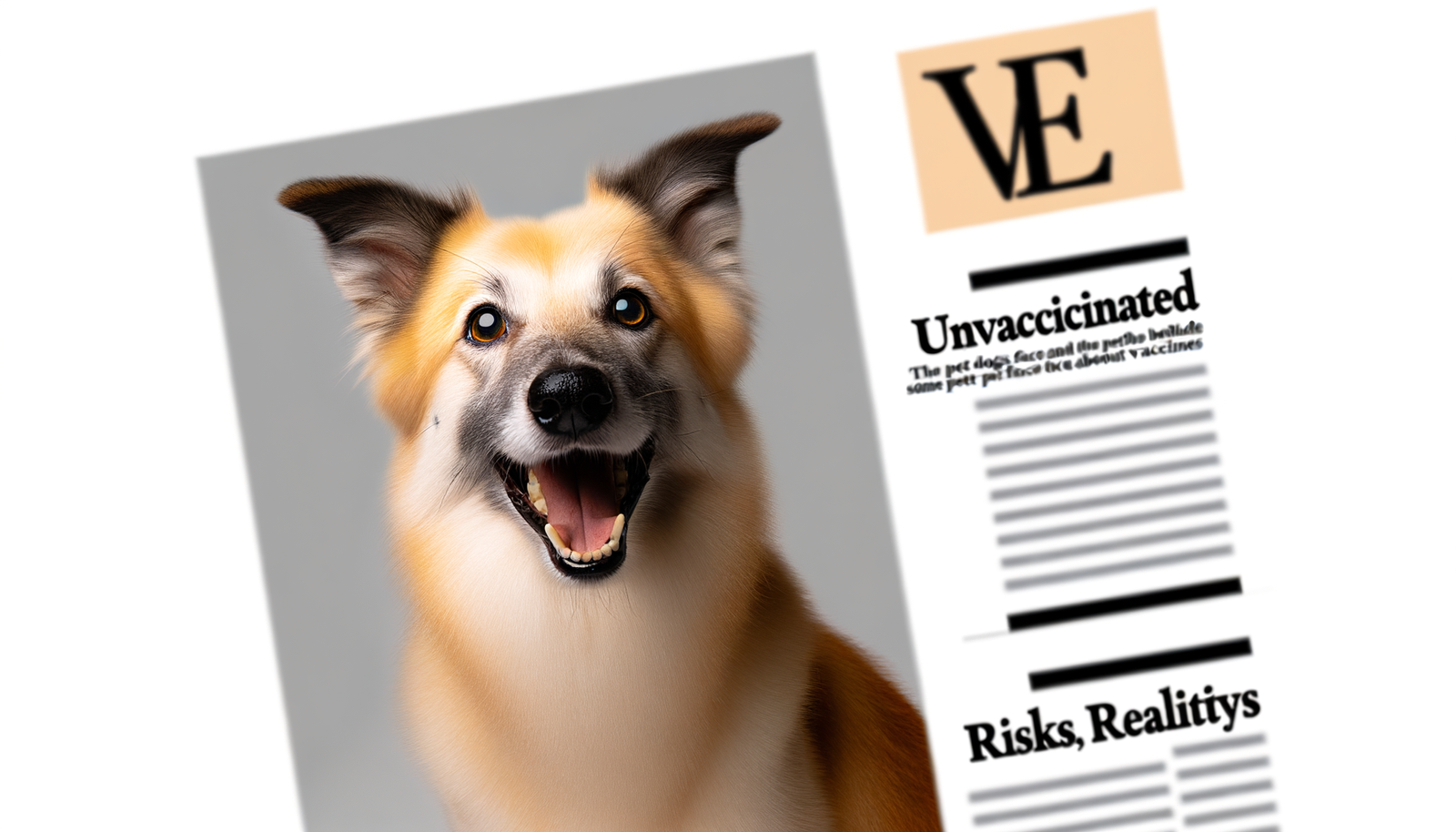Hey there, fellow dog lovers! Today, I want to dive into a topic that sparks heated discussions among pet parents worldwide – unvaccinated dogs. Vaccination is a crucial aspect of responsible dog ownership, but I understand that the decision can be daunting for some. In my 10+ years as a certified dog trainer and enthusiast, I’ve encountered various perspectives on this hot-button issue. Let’s unravel the risks, realities, and debates surrounding unvaccinated dogs and shed light on what every dog parent should consider.
Imagine this – you’re at the park with your furry companion, enjoying a sunny day when suddenly, another dog approaches. The two dogs begin to interact, tails wagging and tongues lolling. In the midst of playing, you happen to ask the other owner about their dog’s vaccination history, only to find out that their dog is unvaccinated. This scenario may seem harmless on the surface, but the implications can be far-reaching.
In my experience, the decision not to vaccinate a dog often stems from concerns about potential side effects, over-vaccination, or a general distrust of pharmaceutical companies. While these are valid concerns, it’s essential to understand the risks associated with forgoing vaccines for your furry friend.
First and foremost, unvaccinated dogs are more susceptible to a host of preventable diseases, including rabies, parvovirus, distemper, and more. These diseases can be not only life-threatening but also highly contagious, putting not only your dog at risk but also other pets they come into contact with. Additionally, in many regions, there are legal requirements for dog vaccinations, particularly for rabies, to ensure public safety.
But beyond the health risks, the decision not to vaccinate can have broader consequences. For instance, if your unvaccinated dog comes into contact with a rabid animal and bites someone, you could face legal repercussions. Moreover, in the unfortunate event that your dog contracts a preventable disease, the emotional toll and financial strain of treating them can be overwhelming.
Now, let’s address the concerns that some pet parents have about the potential downsides of vaccination. I understand the worry about over-vaccination, especially given the conflicting information available. However, working closely with your veterinarian to develop a personalized vaccination schedule based on your dog’s lifestyle and risk factors can help mitigate these concerns.
Here are a few actionable tips to navigate the vaccination debate and make informed decisions for your beloved canine companion:
1. Consult with a Trusted Veterinarian: Your veterinarian is your best ally in making informed vaccination decisions for your dog. They can provide expert guidance tailored to your dog’s specific needs and lifestyle. By fostering an open dialogue with your vet, you can address any concerns or questions you may have about vaccinations.
2. Prioritize Core Vaccines: Focus on core vaccines that protect your dog against the most common and severe diseases. These typically include vaccines for rabies, distemper, parvovirus, and adenovirus. Understanding which vaccines are essential for your dog’s wellbeing can help streamline the vaccination process and minimize unnecessary shots.
3. Practice Preventative Care: In addition to vaccinations, prioritizing preventative care measures like regular vet check-ups, parasite control, and a balanced diet can bolster your dog’s overall health and immunity. A holistic approach to your dog’s wellbeing can reduce the risk of contracting diseases and enhance their quality of life.
Remember, as dog parents, our primary goal is to keep our furry companions safe, healthy, and happy. While the vaccination debate may be complex, arming yourself with accurate information and seeking professional advice can guide you in making the best choices for your dog’s wellbeing.
Now, let’s address the growing “no-vax” movement in the pet community. Some pet owners opt out of vaccinations due to philosophical beliefs, concerns about vaccine safety, or a desire for a more natural lifestyle for their pets. While I respect individual choices, it’s crucial to weigh the potential consequences of these decisions on your dog’s health and the community at large.
In the grand scheme of things, vaccination plays a vital role in safeguarding not only your dog but also the canine population as a whole. By vaccinating your dog, you contribute to herd immunity, protecting vulnerable dogs who may not be able to receive vaccines due to health reasons. This collective responsibility fosters a safer environment for all dogs to thrive and enjoy life to the fullest.
As we navigate the intricacies of the vaccination debate, let’s remember that our shared goal is to prioritize the health and happiness of our furry companions. By staying informed, seeking professional advice, and considering the broader impact of our decisions, we can make well-informed choices that benefit not only our dogs but the entire pet community.
I’d love to hear your thoughts on this topic. Have you faced any challenges or dilemmas regarding dog vaccinations? How do you approach vaccination decisions for your furry friend? Share your experiences in the comments below!




